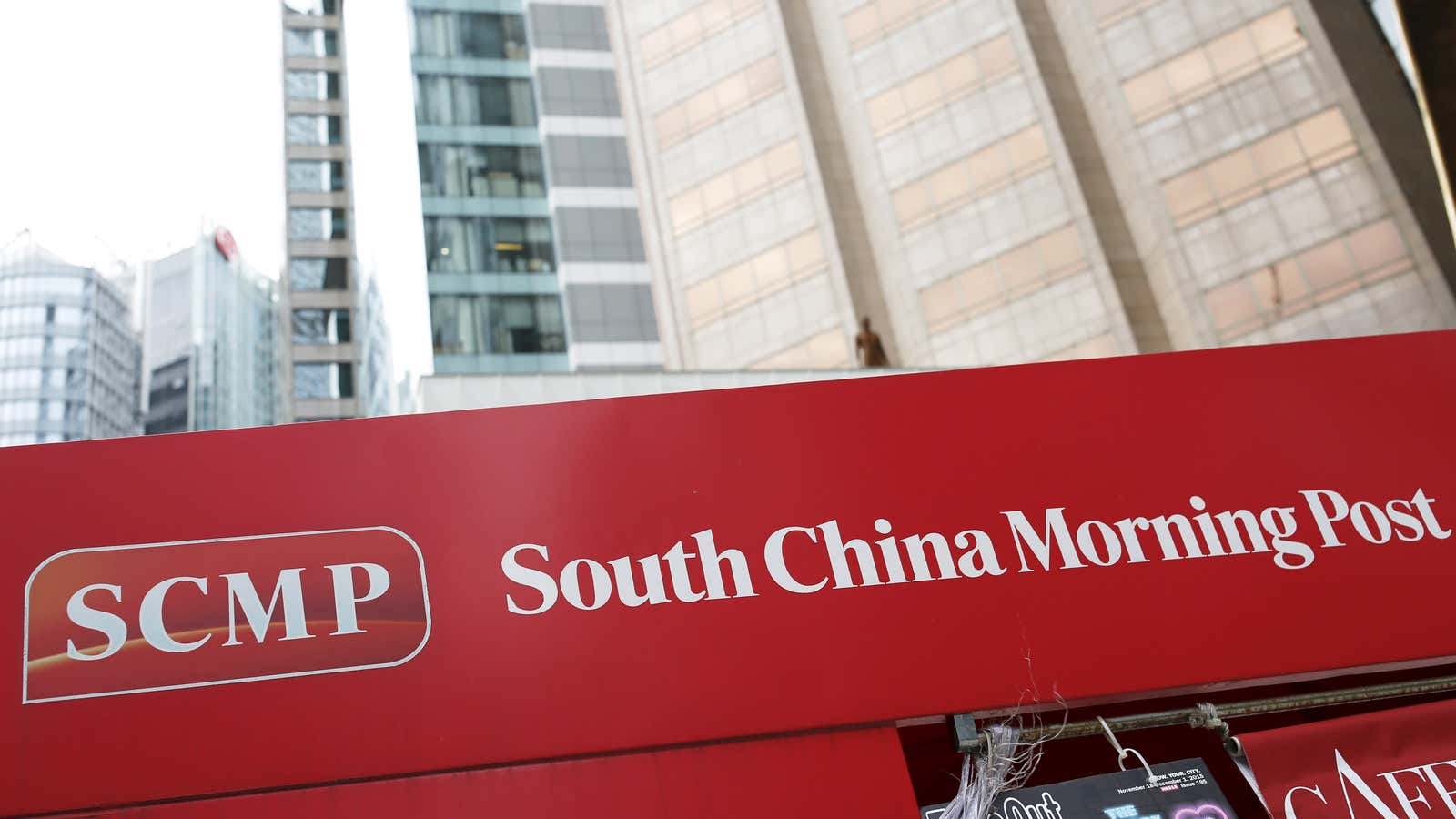The editorial independence of Hong Kong’s South China Morning Post has been thrown into question ever since the century-old newspaper was sold to e-commerce giant Alibaba late last year. Alibaba executives pledged to use the deal to counteract the “negative” portrayal of China in Western media.
Even before the deal has closed, though, the paper has run into trouble of a different sort. Late on Wednesday (March 9) in Hong Kong, the paper’s social media accounts were abruptly suspended in mainland China, and its English-language website blocked. The culprit, several people briefed on the situation told Quartz, was a column written by former editor in chief Wang Xiangwei headlined, Leftists die hard, but Xi Jinping’s blessing for China’s private sector has positive message for economy.
In it, Wang argues that Communist Party “leftist ideologues,” traditionalists who cling to Mao Zedong’s notions of class struggle, are using Xi Jinping’s anti-corruption crackdown and demands for Party unity to “attack anyone or any development deviating from their rigid ideological stance.”
China’s economy is being hurt, he concludes, by a situation that many others have raised about doing business in China in recent months. Bureaucrats are so concerned about being hauled up for corruption or some other offense that they’re not doing anything all. He writes:
The normal and necessary interactions between government departments and private businesses—such as visits and business meals—have become increasingly difficult. This has led to delays in contracts and transactions as approvals are difficult to obtain with officials reticent even to attend meetings.
Hopefully, Xi’s blessing will help improve the situation. After all, with the economy facing even more difficult challenges this year, the government needs a more dynamic private sector to create jobs.
When Quartz asked Wang, who is now in Beijing, for comment about the block and editorial by email, he replied only, “I cannot even open that link.” The SCMP’s spokesman did not respond to e-mails. One person familiar with the blocking of the social media accounts told Quartz that Wang’s editorial had irritated officials in Beijing because it had linked Xi with Mao’s Cultural Revolution, even though it was describing the differences between Xi and leftists.
Such social media account shutdowns—ranging from days to months—have happened to the SCMP before. The paper is not informed beforehand or afterwards, editorial staff say. Staff usually have to guess which articles were to blame—a situation repeated at many foreign news outlets with social media accounts in China.
When SCMP broke the story in 2014 that the son of fallen security czar Zhou Yongkang
to make fortune in business, both SCMP’s Chinese and English websites were shutdown on the mainland for several months, a former editor told Quartz.




